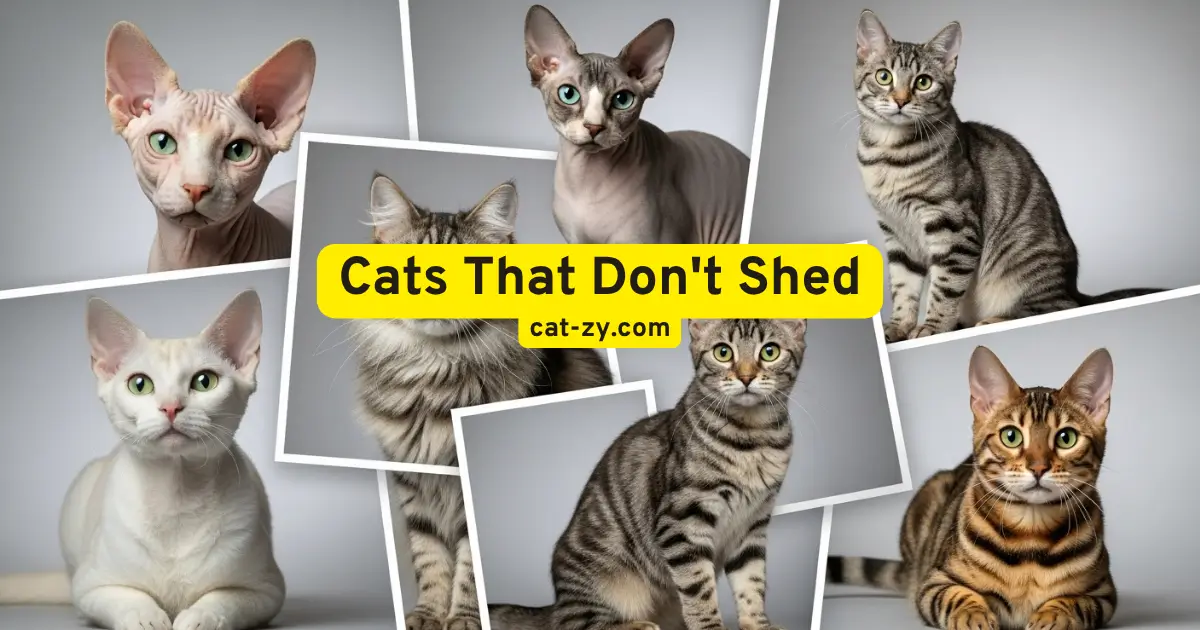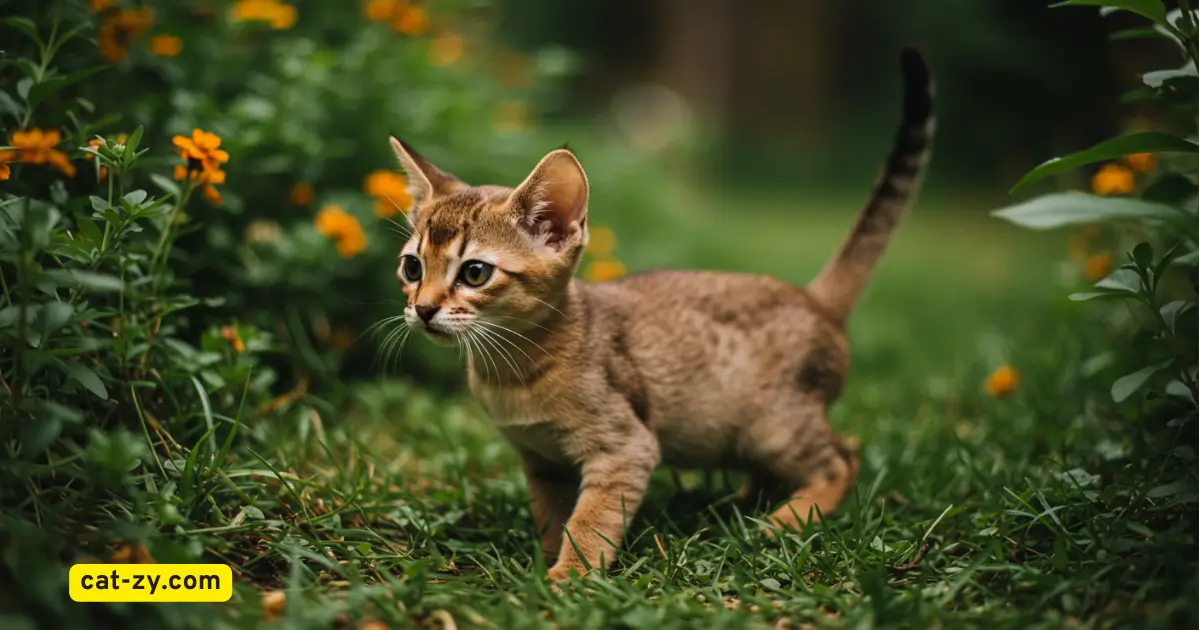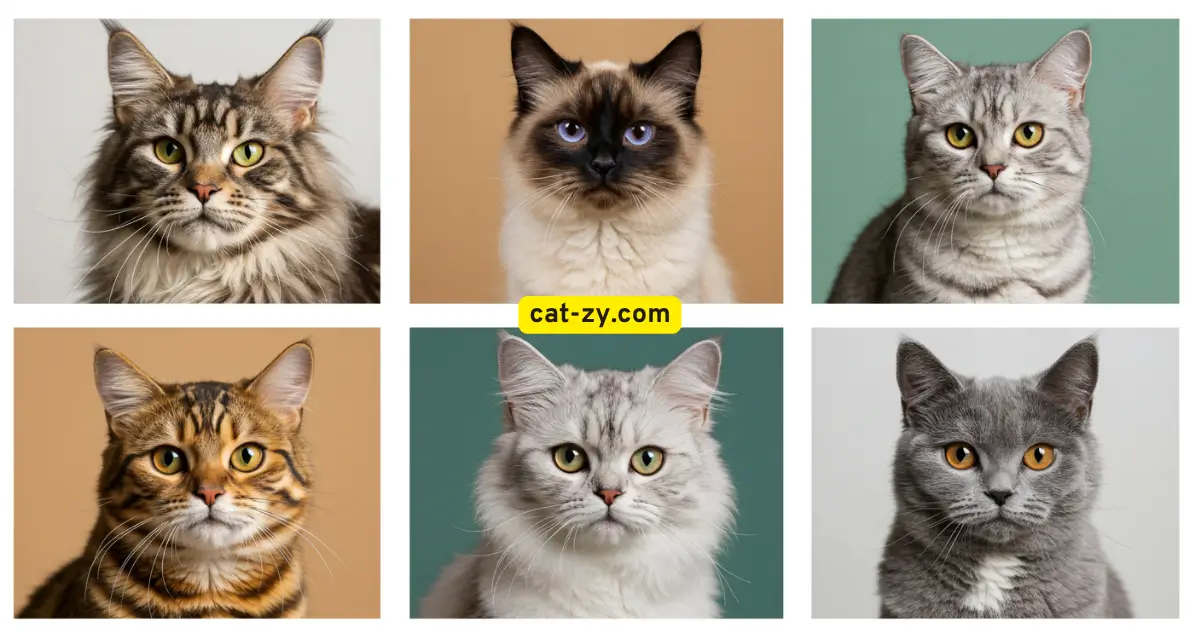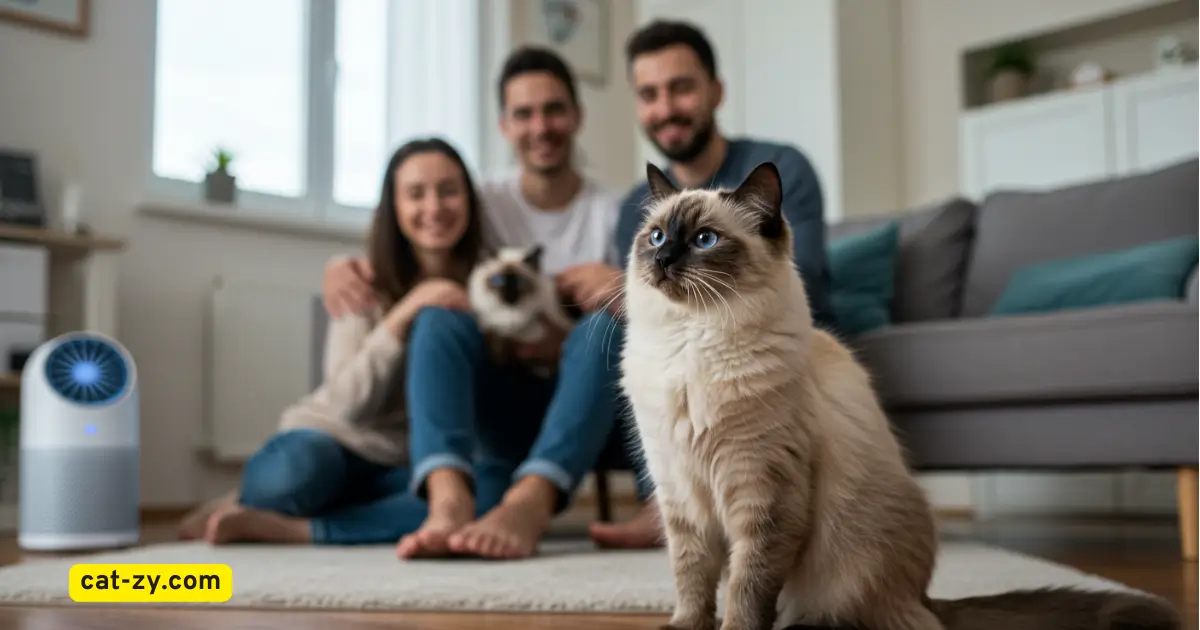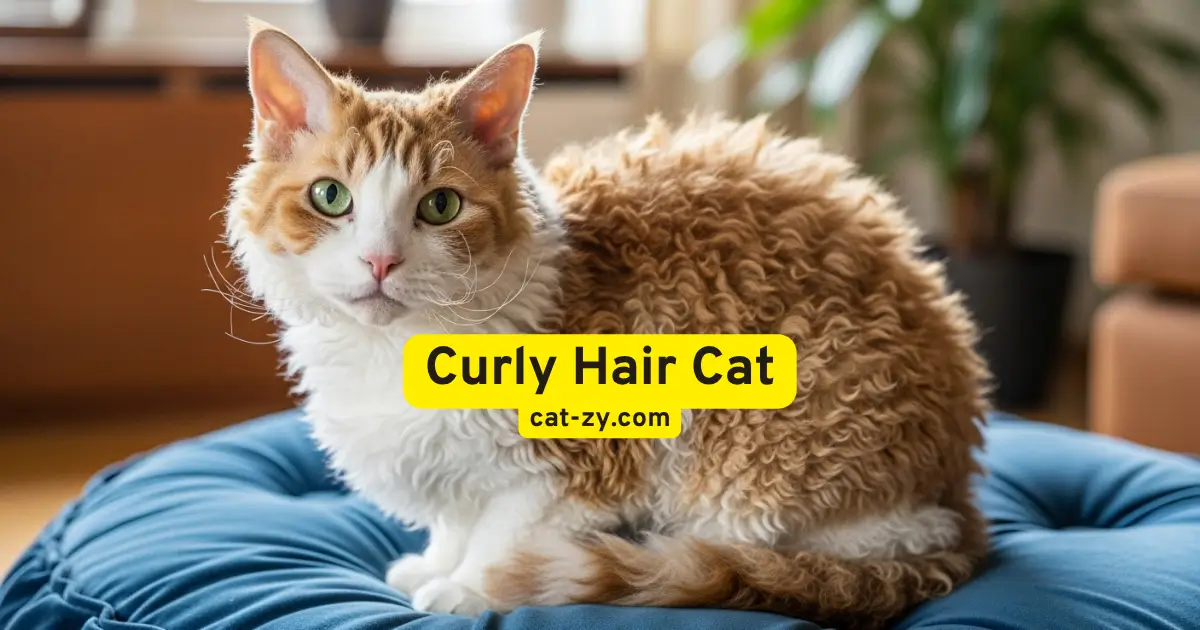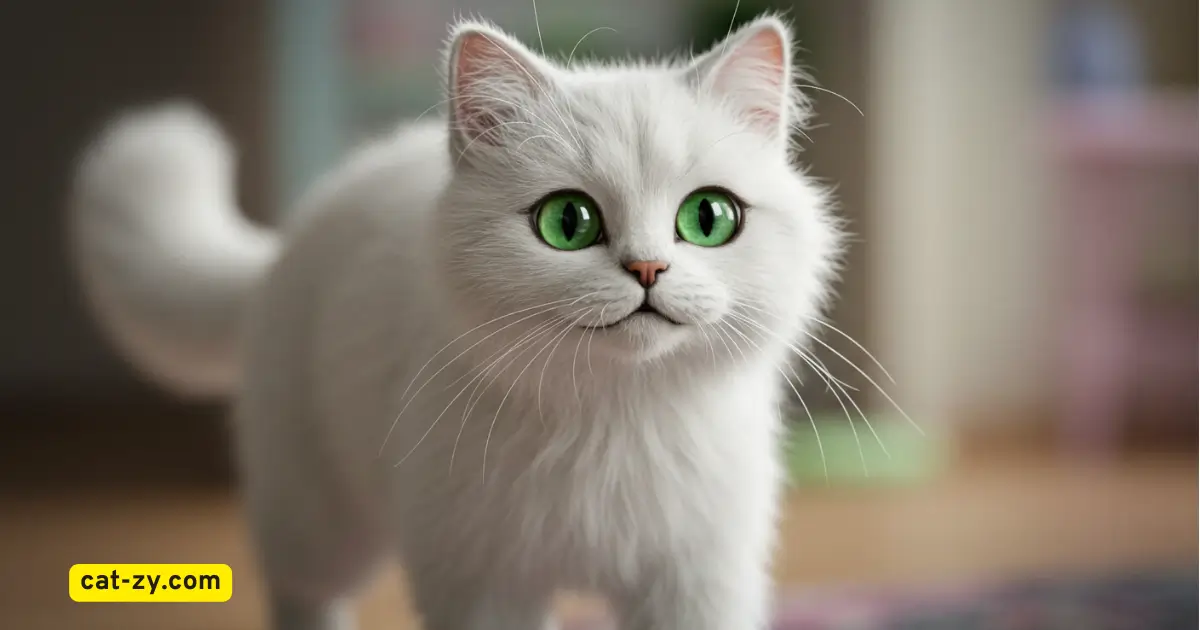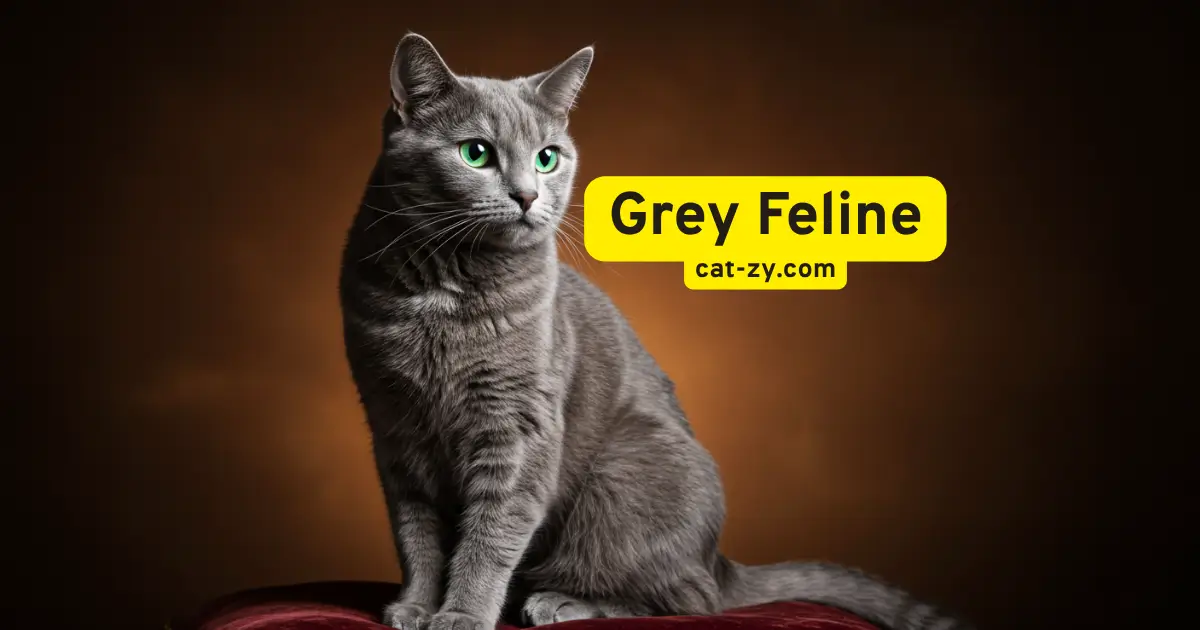Cats That Dont Shed: 7 Amazing Breeds You’ll Love
If you love cats but can’t handle pet dander, you’re not alone. Many people search for cats that dont shed to avoid allergic reactions and constant cleanup.
Imagine having a cat that doesn’t leave hair everywhere. You can enjoy their company without endless vacuuming. In this article, we’ll look at 7 amazing breeds that fit the bill.
Minimal-shedding felines make excellent companions for allergy-prone individuals. They also make great pets for anyone who wants a low-maintenance friend.
Table of Contents
Why Consider Cats That Don’t Shed
Cats that don’t shed are gaining popularity among cat lovers with allergies or who want a cleaner home. If you’re one of them, learning about these breeds can change your life.
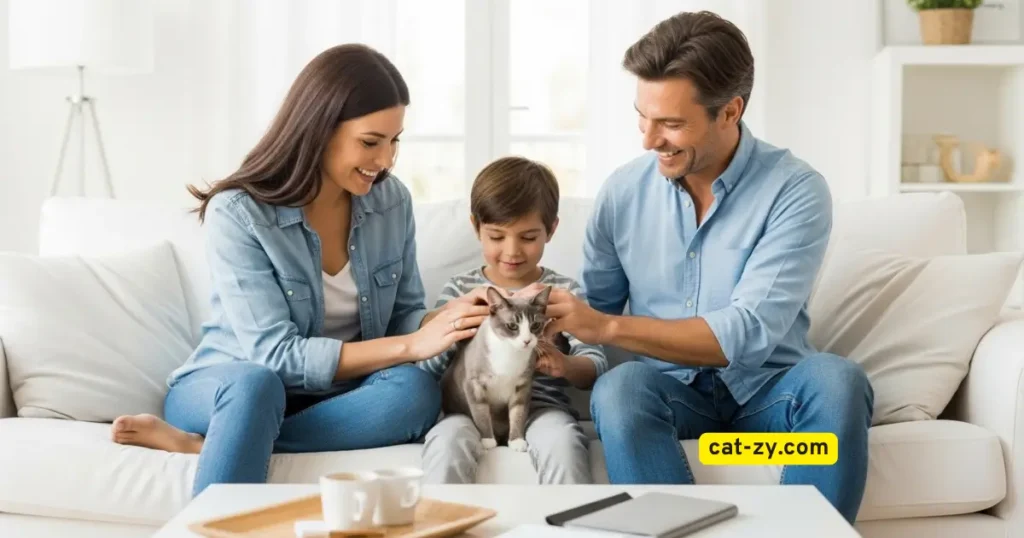
The Reality of Cat Allergies
Feline allergies affect far more people than most realize. They affect a lot of people. The primary culprit is the Fel d 1 protein found in feline saliva, urine, and skin flakes. When cats shed, this protein gets airborne, causing allergic reactions in some.
Benefits for Allergy Sufferers
For those with cat allergies, cats that don’t shed provide significant relief. These low-allergy cats produce fewer allergens. This means allergy sufferers can have a cat without constant sneezing and discomfort. Choosing a hypoallergenic breed makes your home more allergy-friendly.
Cleaner Home Environment
Cats that don’t shed also make your home cleaner. You’ll find significantly fewer feline hairs floating around or settling on furniture. This means you’ll clean less and enjoy your pet more. It’s great for those who love a tidy home and want to cut down on cleaning.
Choosing a low-shedding cat breed improves your home and opens up cat ownership to more people. It’s a smart choice for both current and future cat owners, considering cats for people with allergies.
Understanding Cats That Don’t Shed
While all felines naturally shed, cats that don’t shed much are preferred by many owners. This makes them great for people with allergies. You might wonder what makes these cats special and how they differ from others.
The Science Behind Cat Shedding
Cats shed due to natural processes like climate, health, and genetics. The shedding cycle replaces old hair with new. This cycle can change with the seasons and hormonal balances.
Some breeds have special coats or genes that help them shed less. Knowing this science helps you choose the right cat for your home.
Difference Between Low-Shedding and Truly Hypoallergenic
“Low-shedding” and “hypoallergenic” cats are not the same. Low-shedding cats shed less, but hypoallergenic cats produce fewer allergens. This makes them better for allergy sufferers.
Truly hypoallergenic cats have coats or produce less Fel d 1 protein. This protein is the main allergen that causes allergic reactions in humans.
What Makes These Breeds Special
Hypoallergenic or low-shedding breeds have special traits. They might have single-layer coats or genes that reduce Fel d 1 protein. Such characteristics make these cats that don’t shed perfect matches for allergy sufferers and people seeking cleaner living spaces.
Understanding these special traits helps you see why they’re great companions. They’re perfect for your home.
The Sphynx: Elegant Hairless Companion
If you’re searching for a cat that’s both elegant and loving, the Sphynx might be ideal. They have sleek, hairless bodies that make them stand out. This unique look sets them apart from other cats.
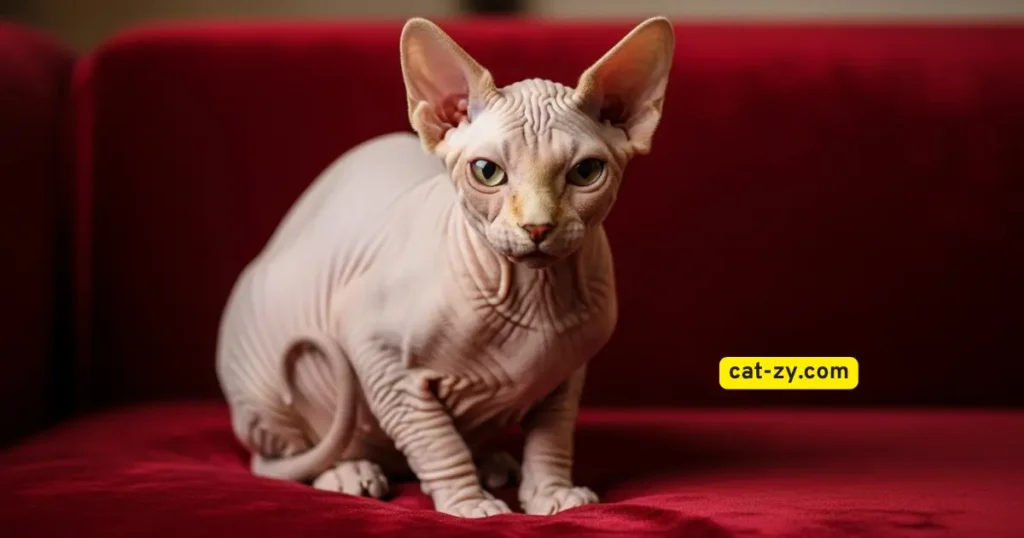
Distinctive Physical Features
The Sphynx has a hairless body that needs regular care to stay healthy and look good. Their skin feels like suede, with a soft, wrinkled texture. They also have large, expressive eyes and oversized ears that add to their striking look.
Temperament and Personality
The Sphynx breed displays remarkably loving and energetic temperaments. They love being around people and often seek out hugs and cuddles. Their outgoing nature makes them perfect for families and those who love interactive pets.
Health Considerations
While Sphynx cats are generally healthy, there are some health issues to watch out for. These include:
Skin Care Requirements
They need regular baths to keep their skin clean and prevent problems. It’s also important to check their skin often for any signs of irritation or infection.
Temperature Sensitivity
Sphynx cats can’t handle extreme temperatures because they don’t have fur. They need a warm place to live, and in cold places, they might need extra care like sweaters or heated beds.
Understanding these aspects of the Sphynx breed helps you decide if they’re the right cat for you.
The Cornish Rex: Curly-Coated Charmer
The Cornish Rex stands out with its curly coat. It’s not just beautiful but also has traits that make it a great pet. Many people love having one as a companion.
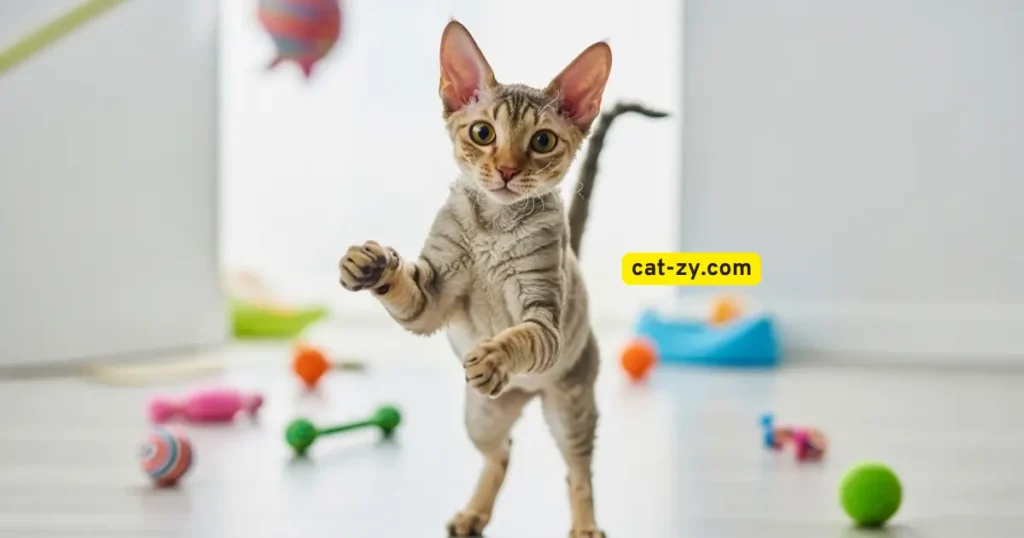
Unique Coat Texture and Appearance
The Cornish Rex has soft, wavy fur that makes it special. This unique coat comes from a natural mutation. It gives the cat a velvety texture that feels nice to touch.
Playful and Active Personality
The Cornish Rex is more than just good-looking. It’s also playful and active. These cats are curious and love to play. They make great friends for families or anyone who loves interactive pets.
Grooming and Care Needs
The Cornish Rex is easy to groom. It doesn’t need much brushing.
Minimal Brushing Requirements
Unlike many cats, the Cornish Rex doesn’t get matted or tangled easily. But it’s good to groom it sometimes. This helps remove loose hair and keeps the coat healthy.
Ear and Nail Care
Don’t forget about your Cornish Rex’s ear and nail health. Regular checks and cleanings are key. They help keep your pet happy and healthy.
The Devon Rex: Mischievous Elf-Like Feline
Devon Rex cats are known for their playful and elf-like looks. They have a unique appearance that makes them special.
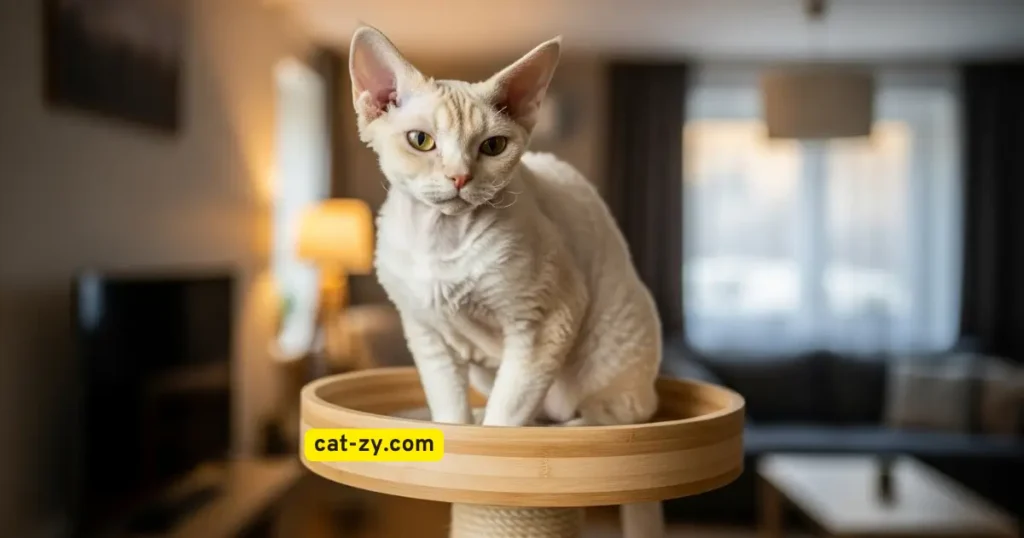
Distinctive Physical Traits
Devon Rex cats feature lean physiques paired with prominently sized ears. The wavy, plush fur texture stands completely apart from all other feline varieties. This elfin look comes from a natural mutation that has been bred for.
Social and Affectionate Nature
Devon Rex cats are smart and loving. They love to play and follow their owners. If you want a cat that’s always by your side, the Devon Rex is perfect.
Special Care Considerations
Caring for a Devon Rex involves considerably more than basic nutrition and housing. They need special care because of their coat and active nature.
Coat Maintenance
The wavy fur requires minimal maintenance yet benefits from consistent brushing routines. Use a soft brush or cloth to keep it clean and healthy.
Diet and Exercise Needs
They need a balanced diet to stay healthy, focusing on skin and coat care. Regular play keeps them active and happy.
Meeting these needs ensures your Devon Rex is happy and healthy.
The Russian Blue: Hypoallergenic Elegance
Allergy sufferers who adore felines will find the Russian Blue an ideal companion. This breed is stunning and sheds very little. It’s great for many homes.
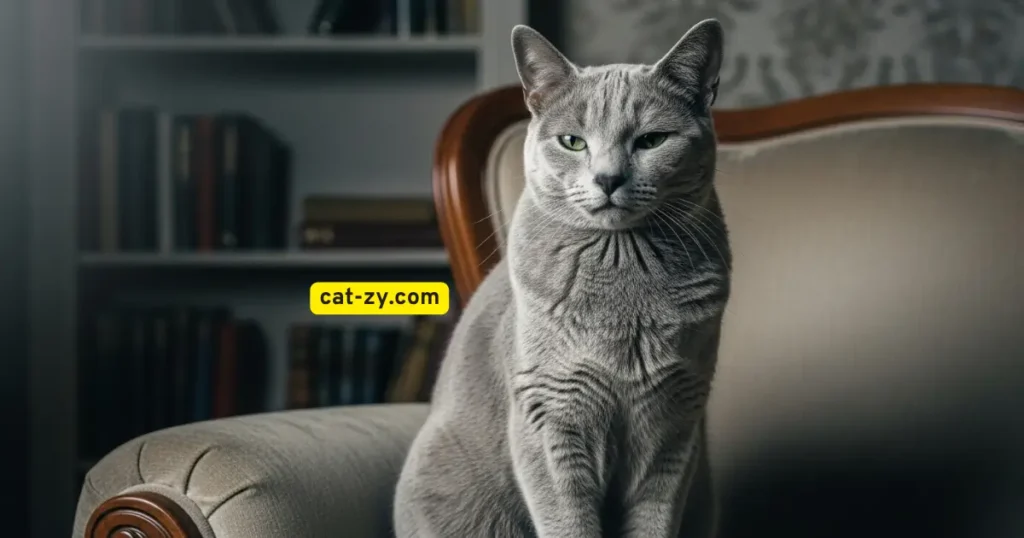
Dense Double Coat That Sheds Minimally
The Russian Blue has a thick double coat that looks great and sheds little. This makes it perfect for those who can’t handle cat hair. The coat needs regular care to avoid mats and stay in top shape.
Reserved Yet Loving Temperament
Russian Blues are quiet but show deep love and affection once they trust you. They’re not as needy as some breeds, but love to play and spend time with their owners.
Health and Longevity
Russian Blues are usually healthy and live a long life, 15 to 20 years. Their long life is why many people love them.
Grooming Requirements
Grooming Russian Blues is easy. They need regular brushing to keep their coat shiny and healthy. This also cuts down on loose hair at home.
Common Health Concerns
While Russian Blues are mostly healthy, they can face health issues like hypertrophic cardiomyopathy, a heart problem. Regular vet visits are key to keeping them healthy and catching problems early.
The Balinese: Silky-Haired Low Allergen Cat
For those with allergies, the Balinese cat is a great choice. It has low shedding and a loving personality. This breed is known for its beautiful looks and friendly nature, making it a favorite among cat lovers.
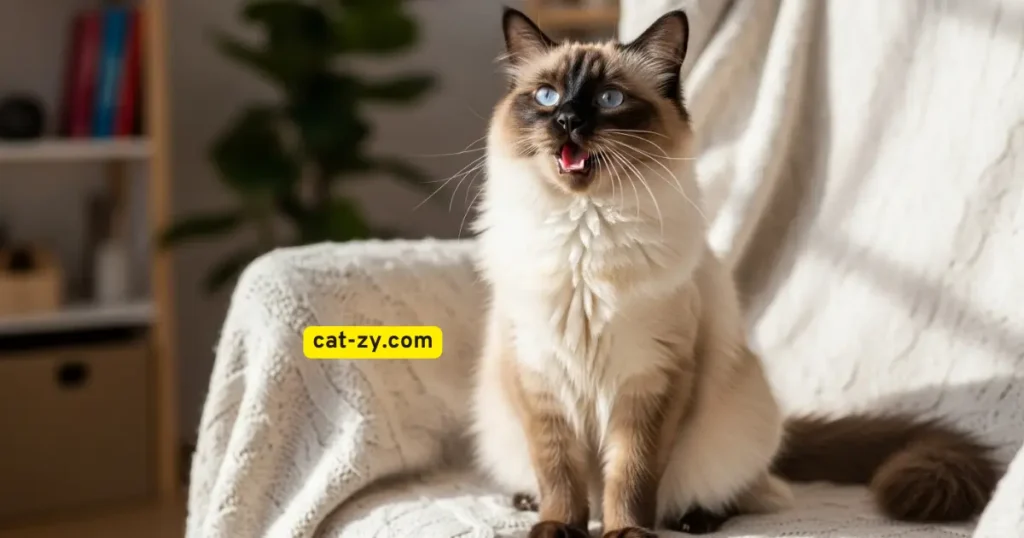
Long Hair Without the Shedding
The Balinese has a medium-length coat that’s both beautiful and hypoallergenic. It sheds very little, which means fewer allergens in the air. But it needs regular grooming to avoid matting and keep its coat looking good.
Intelligent and Vocal Personality
Balinese cats are very smart and love to talk. They are interactive and enjoy chatting with their owners. They are not only loving but also need lots of attention, often asking for play or cuddles.
Grooming and Maintenance
To keep your Balinese cat’s coat looking its best, regular grooming is key. This includes:
Brushing Techniques
It’s best to brush them gently to avoid hair breakage. Use a wide-tooth comb or slicker brush to detangle without harm. Brushing also helps you bond with your cat.
Health Considerations
Balinese cats are generally healthy, but they can get amyloidosis, a kidney disease. Regular vet visits are important to keep them healthy and catch any problems early.
Knowing what the Balinese breed needs can help you decide if it’s the right pet for you.
The Siberian: Surprising Hypoallergenic Forest Cat
The Siberian cat has a thick coat and is surprisingly hypoallergenic. It’s perfect for those who love cats but have allergies. Despite its long fur, it produces less of the Fel d1 protein, which causes most allergic reactions.
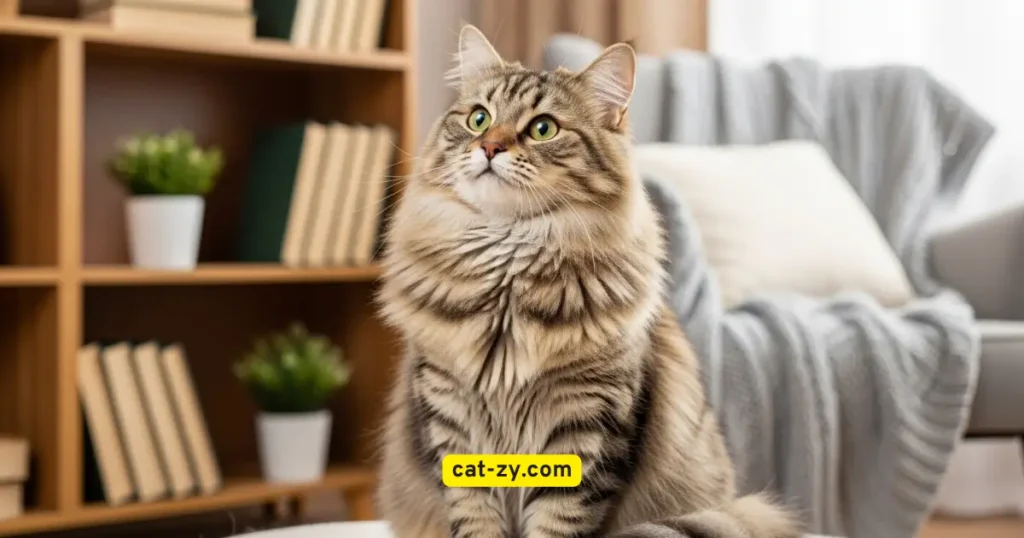
Thick Coat with Low Fel d1 Protein
The Siberian’s coat is truly unique. It has a thick double coat made for Russian winters. This breed sheds less than many others and has lower Fel d1 protein levels, making it hypoallergenic.
Gentle and Playful Disposition
Siberian cats are gentle and playful. They are very smart and love to be around people. Their playful nature makes them great for families or those who want an active pet.
Care Requirements
To keep your Siberian cat happy and healthy, regular grooming is key. This includes:
Seasonal Grooming Needs
During shedding season, Siberian cats need more grooming. Consistent grooming sessions minimize hair loss while maintaining optimal fur condition.
Exercise and Enrichment
The Siberian breed requires abundant physical activity and cognitive engagement to thrive. Toys, climbing structures, and interactive play keep them entertained and exercised. Regular playtime is important for their health.
The Bengal: Exotic Look with Minimal Shedding
If you’re searching for cats that don’t shed while maintaining an exotic appearance, the Bengal is a great choice. Bengal cats are famous for their wild looks. They are a mix of domestic cats and the Asian leopard cat.
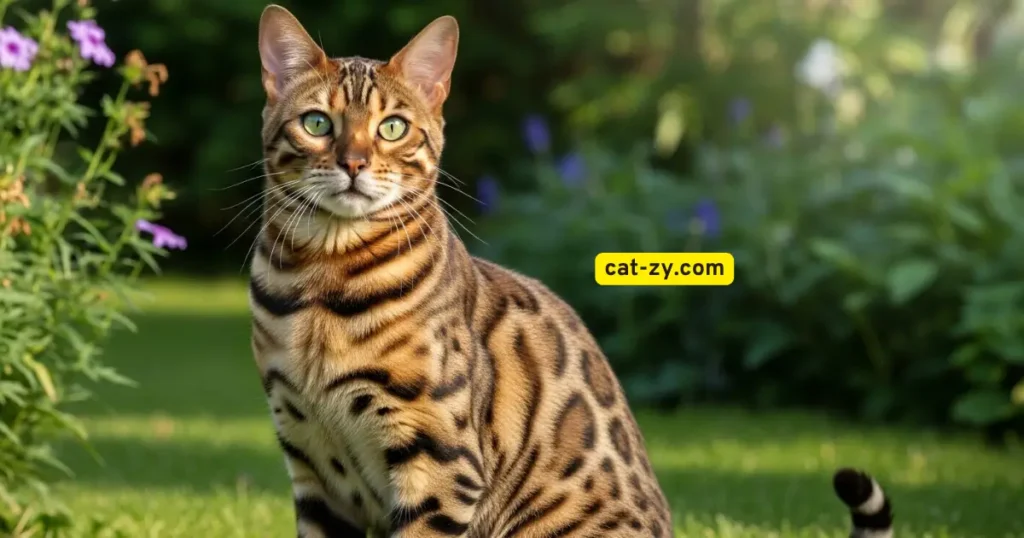
Distinctive Wild Appearance
The Bengal’s coat is unique, with spots or marbling that make it look wild and exotic. This look is not just pretty; it also means they shed less.
High Energy and Intelligence
Bengal cats are not just beautiful; they are also very energetic and smart. They need lots of play and activities to stay happy. This makes them perfect for owners who love to stay active.
Special Needs and Considerations
Looking after a Bengal means knowing what they need. Two key things are a stimulating environment and regular grooming.
Environmental Enrichment
To keep your Bengal happy, give it a fun place to live. This includes toys, climbing spots, and playtime. Playing with your Bengal often helps it stay active and entertained.
Grooming Requirements
Bengals have a thick coat but shed very little. They need regular grooming to keep their coat healthy. Weekly brushing helps keep their coat looking good.
In summary, Bengals offer a special mix of exotic looks, smarts, and low shedding. Meeting their needs can make them wonderful pets. Enjoying time with your Bengal cat can be very rewarding.
Caring for Low-Shedding Cat Breeds
Keeping your cats that don’t shed healthy and happy is key. It involves a good diet, regular grooming, and a nice home. Knowing what your hypoallergenic cat needs is very important.
Diet Considerations for Healthy Skin and Coat

A balanced diet with omega-3 fatty acids is vital. Choose high-quality cat food with omega-3 sources like salmon or flaxseed. Also, make sure your cat always has fresh water.
Regular Grooming Routines
Low-shedding cats need regular grooming. Brush your cat gently but well to keep their coat healthy. How often you groom depends on the breed. For example, the Cornish Rex might need more grooming.
Creating an Allergy-Friendly Home

To cut down on allergens, vacuum and dust regularly. Pay special attention to your feline’s favorite resting and playing locations. Using HEPA filters in vacuums and air purifiers helps keep the air clean.
When to Consult a Veterinarian
If your cat shows signs of illness or discomfort, like changes in appetite or skin issues, see a vet. Regular vet visits can prevent health problems and keep your cat happy and healthy.
Conclusion: Finding Your Perfect Feline Companion
Exploring cats that don’t shed has brought you closer to finding your ideal hypoallergenic cat. Each of the seven featured breeds – Sphynx, Cornish Rex, Devon Rex, Russian Blue, Balinese, Siberian, and Bengal – possesses distinct characteristics. They are perfect for those who suffer from allergies or prefer less cat hair.
When choosing your perfect feline companion, think about temperament, grooming needs, and health. Hypoallergenic cats are great for allergy sufferers and bring joy to many families. Understanding why these cats that don’t shed have unique qualities helps you make a choice that fits your lifestyle and preferences.
Whether you like the sleek coat of the Russian Blue or the playful Bengal, there’s a hypoallergenic cat for you. Take the next step to find your perfect match. Discover the joy of sharing your life with one of these amazing cats that don’t shed.
FAQ
Are there really cats that don’t shed?
No cat is completely shed-free. But cats that don’t shed much are great for people with allergies or who don’t like cat hair. These cats are called hypoallergenic.
What makes a cat hypoallergenic?
Allergy-friendly felines produce reduced amounts of Fel d 1 protein in their saliva and dermal secretions. This specific protein serves as the primary trigger for feline-related allergic reactions. Felines possessing minimal-shedding or single-coat layers emit reduced allergen quantities.
Are low-shedding cats good for people with allergies?
Yes, low-shedding cats are a good option for allergy sufferers. They may cause some allergic reactions, but they are usually milder than those from high-shedding breeds.
Do hypoallergenic cats require special care?
Yes, hypoallergenic cats need special care. They need regular grooming to prevent matting and tangling. They also need a balanced diet for healthy skin and coat.
Can I get a cat that’s hypoallergenic if I have severe allergies?
If you have severe allergies, it’s important to spend time with a hypoallergenic cat first. This will help you see how you react. Some people with severe allergies may not react as strongly to these cats.
Are there any other factors to consider when choosing a hypoallergenic cat breed?
Yes, think about grooming needs, energy level, and temperament when picking a hypoallergenic cat breed. Learning about the breed’s characteristics will help you find a cat that fits your lifestyle well.
Can regular grooming reduce allergens?
Consistent brushing routines significantly decrease free-floating fur and skin particles. These are the main allergens. Grooming can make a hypoallergenic cat even better for households with allergy sufferers.
Are there any cat breeds that are more hypoallergenic than others?
Yes, some breeds like the Sphynx, Russian Blue, Balinese, Siberian, and Bengal are more hypoallergenic. This is because of their unique coats or low Fel d 1 protein production.
Are there cats that don’t shed at all?
While no cats that don’t shed exist completely, several breeds come very close to being shed-free. Breeds like the Sphynx (which is hairless) and low-shedding varieties like the Russian Blue and Cornish Rex produce minimal hair loss compared to traditional cats.
Are there any cats that don’t shed for apartment living?
Yes, some cats don’t shed much, making them perfect for apartment dwellers. The Balinese, Devon Rex, and Bengal breeds are excellent choices for smaller living spaces because they produce less hair and dander, keeping your apartment cleaner with minimal effort.
Are there cats that dont shed that are good with children?
Absolutely! Many cats that don’t shed are wonderful family pets. The Siberian and Cornish Rex breeds are particularly good with children due to their playful, gentle nature and minimal shedding properties, making them ideal for families with kids who may have mild allergies.
Are there cat breeds that don’t shed and stay small?
Several cat breeds that don’t shed remain relatively compact. The Devon Rex and Cornish Rex are smaller breeds known for their minimal shedding and playful personalities, making them perfect for those who want a petite, low-maintenance feline companion.

